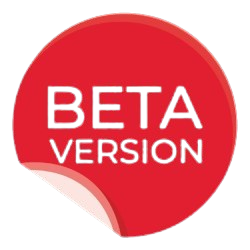
RFP - for Solidaridad in India - Salary Benchmarking Study with that of Central Government Employees
- Date of Issue: 28-10-2025
- Last date of submission: 25-11-2025
Tender Description
Terms of Reference (ToR) for Solidaridad in India - Salary Benchmarking Study with that of
Central Government Employees
1. Introduction
This Terms of Reference (ToR) document outlines the approach and methodology for conducting a comprehensive salary benchmarking study of the organisation with that of Central Government Employees in India. The primary aim is to align the Central Government Employees salary and benefits structure with the latest Central Pay Commission (CPC) recommendations (e.g., 7th CPC Pay Matrix and associated rules) and subsequent modifications. The study will focus on a detailed comparison and analysis of the Organisation current salary and benefits structure against the relevant pay scales and benefits provided to Central Government employees (e.g., as per the 7th Central Pay Commission or equivalent latest scale) for comparable positions, to establish a feasible and sustainable compensation strategy.
2. Objectives
The salary benchmarking study aims to:
- To conduct a detailed comparison and analysis of the NGO's current salary and benefits structure against the relevant pay scales and benefits provided to Central Government employees (e.g., as per the 7th Central Pay Commission or equivalent latest scale) for comparable positions, to establish a feasible and sustainable compensation strategy.
- Implement Salary Caps: Establish salary caps at specific position level of the organisation to prevent excessive compensation and maintain internal salary equity. This will involve setting maximum allowable salary limits for each role, particularly at senior management and executive levels, to ensure that salary growth is sustainable and justifiable within the organizational structure.
- Enhance Employee Benefits: Review and enhance the current employee benefits package to improve overall job satisfaction and make the organization more competitive in the NGO sector. This will include evaluating benefits such as health insurance and retirement plans, as well as considering modern benefits like flexible working conditions, professional development opportunities, and wellness programs.
- Geographical Differences in Pay: Account for the geographical locations of the NGO's operations, which is crucial, especially if it operates in multiple cities (Metro and non-Metro). Different cost of living standards and local market conditions can significantly influence salary structures. Including an analysis of geographical pay differences will ensure that your salary benchmarking is relevant and fair across all locations.
3. Background
Solidaridad India, as part of its strategic mission to improve sustainability and equity within agricultural and industrial supply chains, faces distinctive challenges in attracting and retaining talent amidst the complexities of operating within diverse economic environments across India. With operations that span rural and urban divides and a mandate that includes a range of thematic areas from agricultural development to corporate sustainability, Solidaridad must devise a remuneration system that is both competitive within the NGO sector and reflective of the organisation’s values and financial sustainability.
The dynamic nature of the job market, where Solidaridad competes not only with other NGOs but also with the private sector for skilled professionals, necessitates an adaptive and fair compensation strategy. This strategy must cater to the varied roles and expertise required across different projects and regional offices, considering the varying cost of living and local economic conditions that influence salary expectations.
Moreover, as an organisation committed to ethical practices and social impact, it is imperative for Solidaridad to develop a structured remuneration system that aligns with its strategic goals. The salary benchmarking study aims to establish a robust framework that not only aligns with current salary trends but is also integrated into Solidaridad’s broader operational and strategic objectives. This includes ensuring that compensation packages support the organisation's mission-driven goals while enhancing operational efficiency and long-term sustainability.
This salary benchmarking study is vital for Solidaridad India to develop a compensation system that is both equitable and competitive. The system needs to support the organisation's mission effectively, enhance its operational capabilities, and ensure the attraction and retention of competent personnel across its diverse functional and thematic areas.
4. Scope of Work
a) Job Matching and Equivalence:
- Identify and establish equivalent job roles between the organisation (SREC) positions and specific levels/grades within the Central Government's pay matrix (e.g., Group A, B, C, and specific Pay Levels)
b) Data Collection and Analysis:
- Salary and Benefits Survey: Conduct a comprehensive survey to collect current salary and benefits data across all roles within Solidaridad India. This survey should cover different geographical regions to account for cost-of-living variations.
- Central Government Salary: Gather and analyse salary data of Central Government each Level of Salary and Benefits.
- Map organisation staff roles to the closest equivalent Pay Levels/Grades within the Central Government structure, detailing the rationale for each match based on required qualifications, responsibilities, reporting lines, and complexity
c) Salary Structure Design:
- Increment Structures: Develop a detailed structure for salary increments based on Similar Level of Central Government employee.
- Salary Caps Implementation: Create guidelines for salary caps at various organisational levels, ensuring these caps are aligned with Central Government Pay and grade Structure.
- Geographical Salary Differentials: Formulate policies that address salary variations between different regions, reflecting the cost of living, local market rates, and other economic factors.
Evaluation Criteria
Proposals will be evaluated based on:
- Methodological rigor and clarity of approach.
- Relevance of previous experience and proven track record in similar projects.
- Cost-effectiveness and value for money.
- Innovative approaches to data collection and analysis.
Eligible organisations are requested to submit the Proposal along with budget latest by 25th November 2025 to Ms. Mariam in mariam@solidaridadnetwork.org with “Salary Benchmarking Study – Solidaridad India with that of Central Government employees” in the subject line of the email.
For detailed information, please check the complete version of the RFP attached below.
Job Email ID: mariam(at)solidaridadnetwork.org
Download Attachment: TOR _ Salary Benchmarking with Central Govermnet Employee (1).doc
